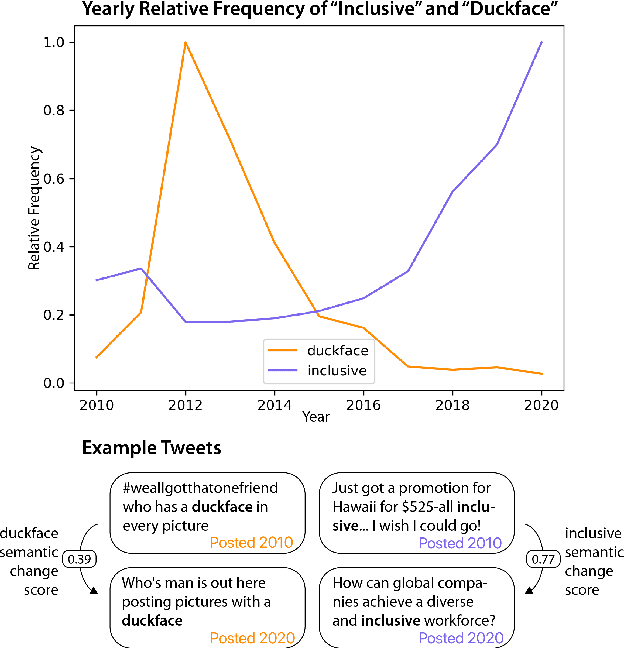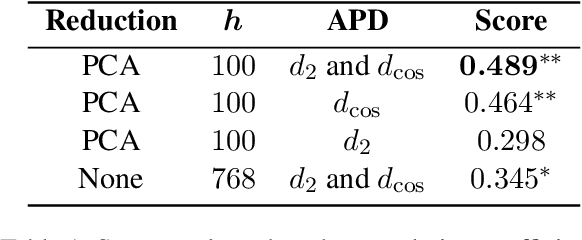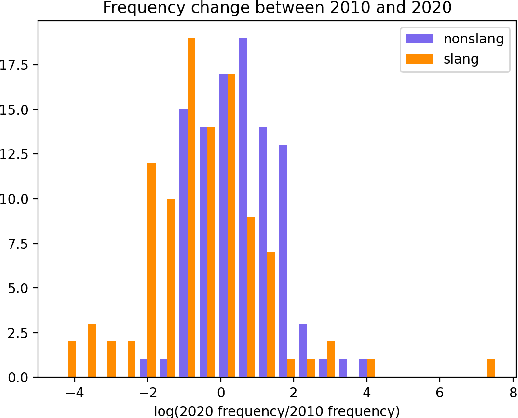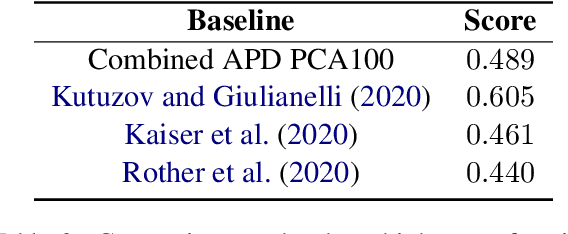Slangvolution: A Causal Analysis of Semantic Change and Frequency Dynamics in Slang
Paper and Code
Mar 09, 2022



Languages are continuously undergoing changes, and the mechanisms that underlie these changes are still a matter of debate. In this work, we approach language evolution through the lens of causality in order to model not only how various distributional factors associate with language change, but how they causally affect it. In particular, we study slang, which is an informal language that is typically restricted to a specific group or social setting. We analyze the semantic change and frequency shift of slang words and compare them to those of standard, nonslang words. With causal discovery and causal inference techniques, we measure the effect that word type (slang/nonslang) has on both semantic change and frequency shift, as well as its relationship to frequency, polysemy and part of speech. Our analysis provides some new insights in the study of semantic change, e.g., we show that slang words undergo less semantic change but tend to have larger frequency shifts over time.
 Add to Chrome
Add to Chrome Add to Firefox
Add to Firefox Add to Edge
Add to Edge